Life
Sign up for our newsletter
We summarize the week's scientific breakthroughs every Thursday.
-
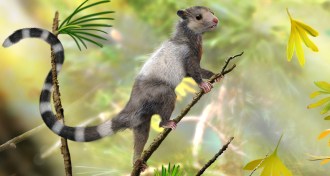 Paleontology
PaleontologyFossils push back origins of modern mammals
Fossils of three newly identified early mammals from China suggest that the common ancestor of today’s mammals lived over 200 million years ago.
By Meghan Rosen -
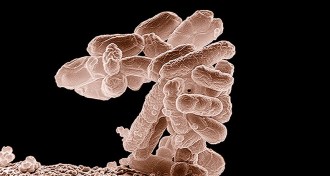 Microbes
MicrobesSpeedy test could improve treatment of urinary tract infections
A new test for drug-resistant bacteria may speed the diagnosis and treatment of urinary tract infections.
By Nsikan Akpan -
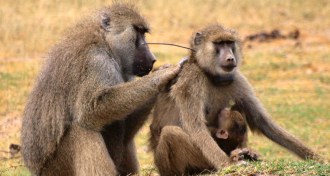 Animals
AnimalsStrong social bonds help lady baboons live longer
Wild, female baboons with stronger social connections with both female and male baboons live longer than females with weaker ties, a new study shows.
-
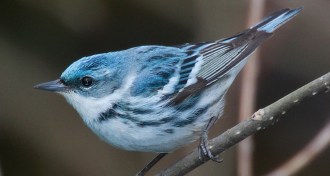 Life
LifeNorth American bird update finds a little good news
Conservation measures have succeeded in improving the plight of certain North American bird species, but overall the national report card says “needs improvement.”
By Susan Milius -
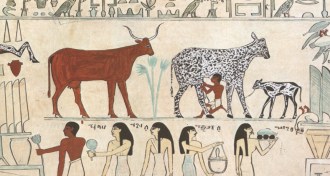 Ecosystems
EcosystemsArtifacts, fossils tell story of changes to Egypt’s animals
Ancient Egyptian artifacts and fossils from the Nile Valley show a correlation between species extinctions and a growing human population in a drying climate.
-
 Health & Medicine
Health & MedicineViruses can zoom through workplaces in hours
A virus on an office door handle can spread to more than half the people working there within a few hours.
By Nathan Seppa -
 Plants
PlantsHelping trees adapt to climate change possible but a huge task
A new study finds that it would be possible to assist the migration of trees and help them adapt to climate change, but the scale of such a project would be massive.
-
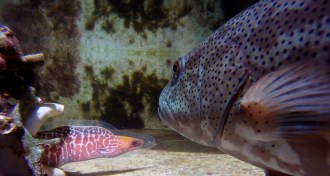 Animals
AnimalsCoral trout know when it’s time for team hunting
In certain situations, coral trout appear to be as good as chimpanzees at knowing when to collaborate, a new study suggests.
-
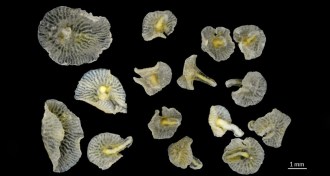 Animals
AnimalsMystery mushroomlike sea creatures get names
Specimens of a mushroomlike animal from the sea now have a scientific name, but researchers aren’t sure what kind of animal they are.
By Susan Milius -
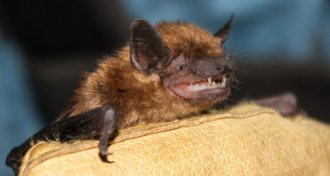 Neuroscience
NeuroscienceTo study attention, pay attention to bats
Studying how bats’ brains find prey using echolocation could have implications for the way human brains pay attention.
-
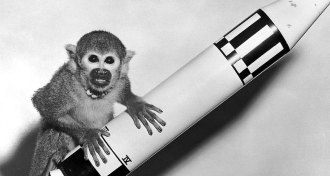 Animals
AnimalsA brief history of animal death in space
The Russian “sexy space geckos” join a long list of creatures that have died after humans sent them into space.
-
 Health & Medicine
Health & MedicineTwo-part vaccine protects monkeys from Ebola
An experimental vaccine protected macaques from infection with the Ebola virus up to 10 months after receiving the two-shot regimen.
By Nathan Seppa